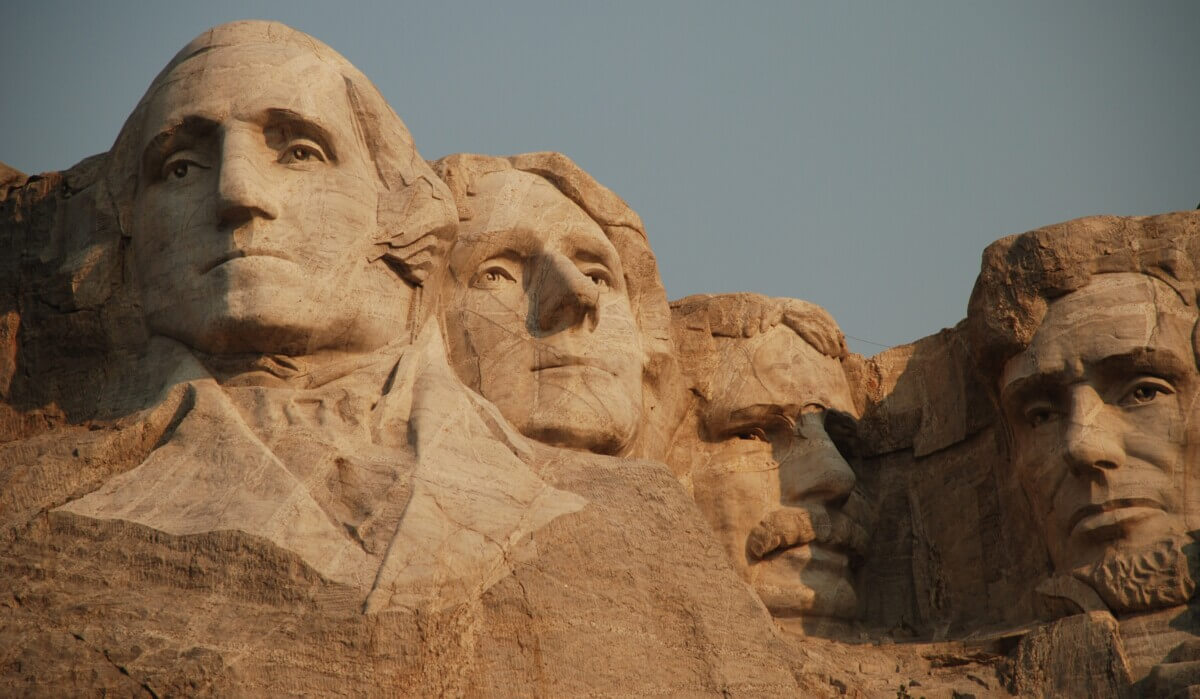
Mount Rushmore (Photo by Ronda Darby on Unsplash)
EdNews compiles lists of consensus picks featured on credible review sites. We aim to lay out top consumer research finds for you by bringing expert rankings to one place.
Ever wondered which U.S. presidents would top the list if we rated them not just by their policies but also by their charisma, wit, and ability to rock a powdered wig? Get ready to meet the best of the best, the commanders-in-chief who not only shaped the nation but also brought some serious personality to the Oval Office. From Teddy Roosevelt’s rugged charm to Lincoln’s legendary storytelling, these leaders knew how to leave a mark. And let's not forget those presidential debates, where the zingers flew faster than campaign promises! Buckle up, because we’re about to take a historic tour through the greatest presidents in U.S. history! When it comes to ranking our leaders, there are five leaders who are consistently ranked by experts and historians as the best of the best U.S. presidents. You may not agree, so feel free to exercise America’s First Amendment right to freedom of speech and leave us a comment.
Table of contents
The List
1. Abraham Lincoln
Lincoln's Greatest Accomplishments:
Emancipation Proclamation: Issued on January 1, 1863, this landmark executive order declared the freedom of all slaves in Confederate-held territory, paving the way for the abolition of slavery across the United States.
Preserving the Union: Lincoln's leadership during the Civil War was crucial in maintaining the United States as a single, unified nation despite intense sectional conflict and secession by Southern states.
Gettysburg Address: Delivered on November 19, 1863, this brief but powerful speech redefined the purpose of the Civil War, emphasizing liberty, equality, and democratic ideals as central to the American identity.
Passing the Thirteenth Amendment: Lincoln was instrumental in the passage of this amendment, which was ratified on December 6, 1865, and formally abolished slavery throughout the United States.
Establishing the National Banking System: Through the National Banking Acts of 1863 and 1864, Lincoln helped create a standardized national currency and a network of national banks, stabilizing the American economy and laying the groundwork for modern banking.
According to VOA, it takes a visionary to come out on top: “The five highest rated presidents, according to the C-SPAN survey, are Abraham Lincoln, George Washington, Franklin D. Roosevelt, Theodore Roosevelt and Dwight D. Eisenhower. And all of them, from John F. Kennedy (8th), all the way up to Abraham Lincoln (1st) created some idealized vision of America.”
Stacker is impressed by Lincoln’s accomplishments, writing, “Abraham Lincoln successfully led the country through the Civil War and paved the way for the abolition of slavery by issuing the Emancipation Proclamation. He is perhaps most noted for delivering the Gettysburg Address, which begins with the famous lines, ‘Four score and seven years ago,’ in which he declares that all men are created equal. Though Lincoln received high marks in all categories of government, historians put him at #1 because of his crisis leadership. He heralded America through the deadliest war in its history while keeping the Union intact.”
“Lincoln has proven to be a consistent favorite, topping all four editions of the Presidential Historians Survey. He issued the Emancipation Proclamation on Jan. 1, 1863, declaring ‘that all persons held as slaves’ within the U.S. ‘are, and henceforward shall be free.’ His highest scores are befittingly in crisis leadership, vision/ability to set an agenda and performance within context of the times,” SiLive.com writes.
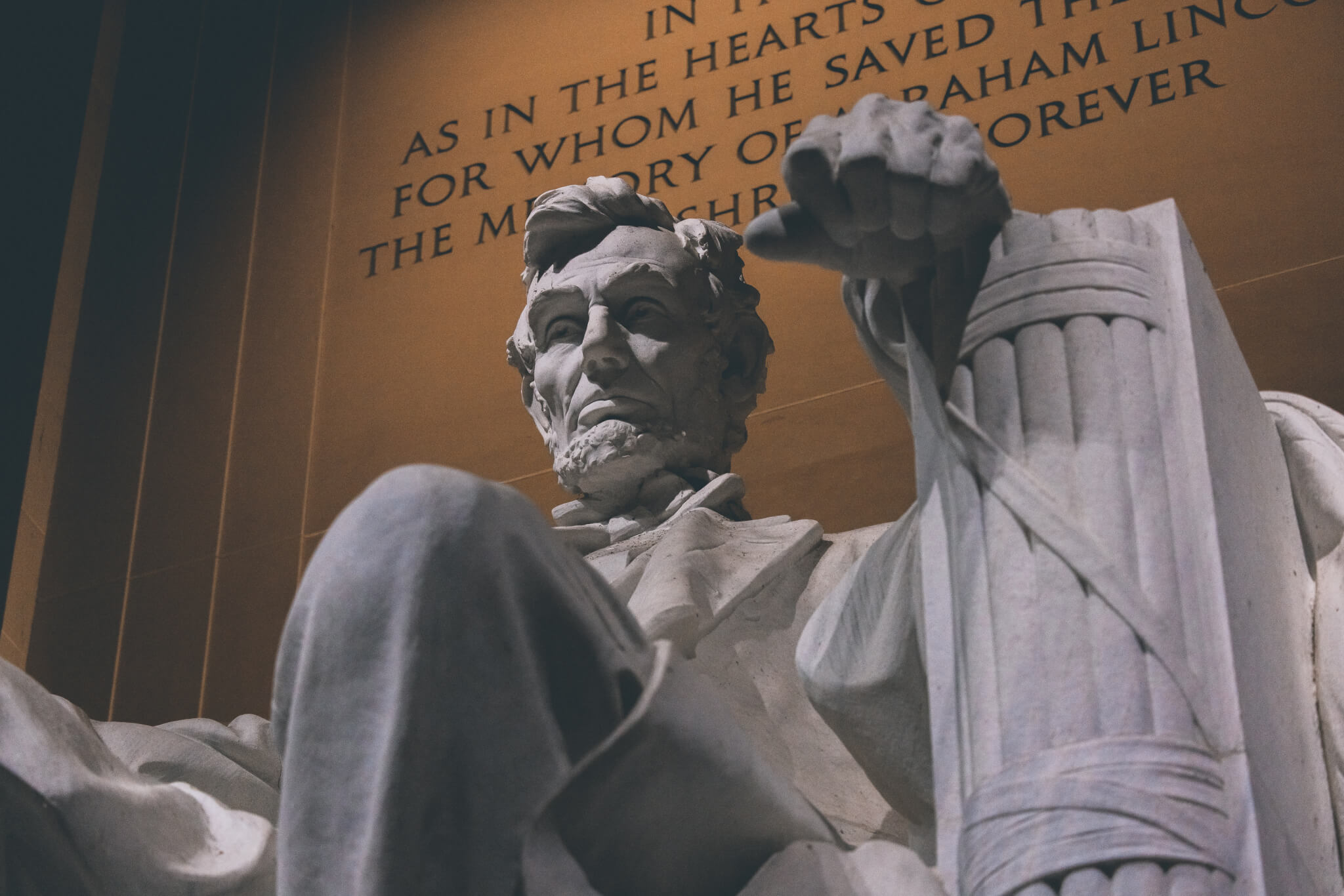
2. George Washington
Washington's greatest accomplishments:
Leadership in the American Revolutionary War: As the Commander-in-Chief of the Continental Army, Washington led the colonies to victory over the British, securing American independence with key victories such as the Siege of Yorktown in 1781.
Presiding over the Constitutional Convention: In 1787, Washington presided over the Constitutional Convention in Philadelphia, playing a pivotal role in the drafting and eventual ratification of the U.S. Constitution.
First President of the United States: Elected unanimously in 1789, Washington set many important precedents during his two terms as the nation’s first president, including the formation of the Cabinet and the tradition of a peaceful transfer of power.
Establishment of a Strong Federal Government: Washington helped lay the foundation for a strong federal government, supporting key measures like the creation of the first national bank and the implementation of a national tax system, which were crucial for the young nation's stability and growth.
Farewell Address: In his 1796 Farewell Address, Washington provided valuable advice to the nation, warning against political parties, foreign alliances, and sectionalism. His insights continue to influence American political thought and policy to this day.
America’s first president is also one of the top five leaders of all time. Altgov2.org says, “Although America was well on the way to becoming an independent country, it would not happen without George Washington. He got everything off the ground in 1776 and crushed the Newburgh Conspiracy in 1783, and all of this happened before he actually became the President of the United States. His moral authority, economic management, and performance led this very young nation to numerous successes.”
“George Washington ranks highly for his economic management, moral authority, and performance within the context of his times. Washington remains the only president to not have been affiliated with a political party during his time in office,” Insider claims.
And WION reports, “George Washington has occupied the second position on the list of top presidents. America’s first president, Washington, helped nurture the budding democracy by not becoming king and stepping down after serving as president.”
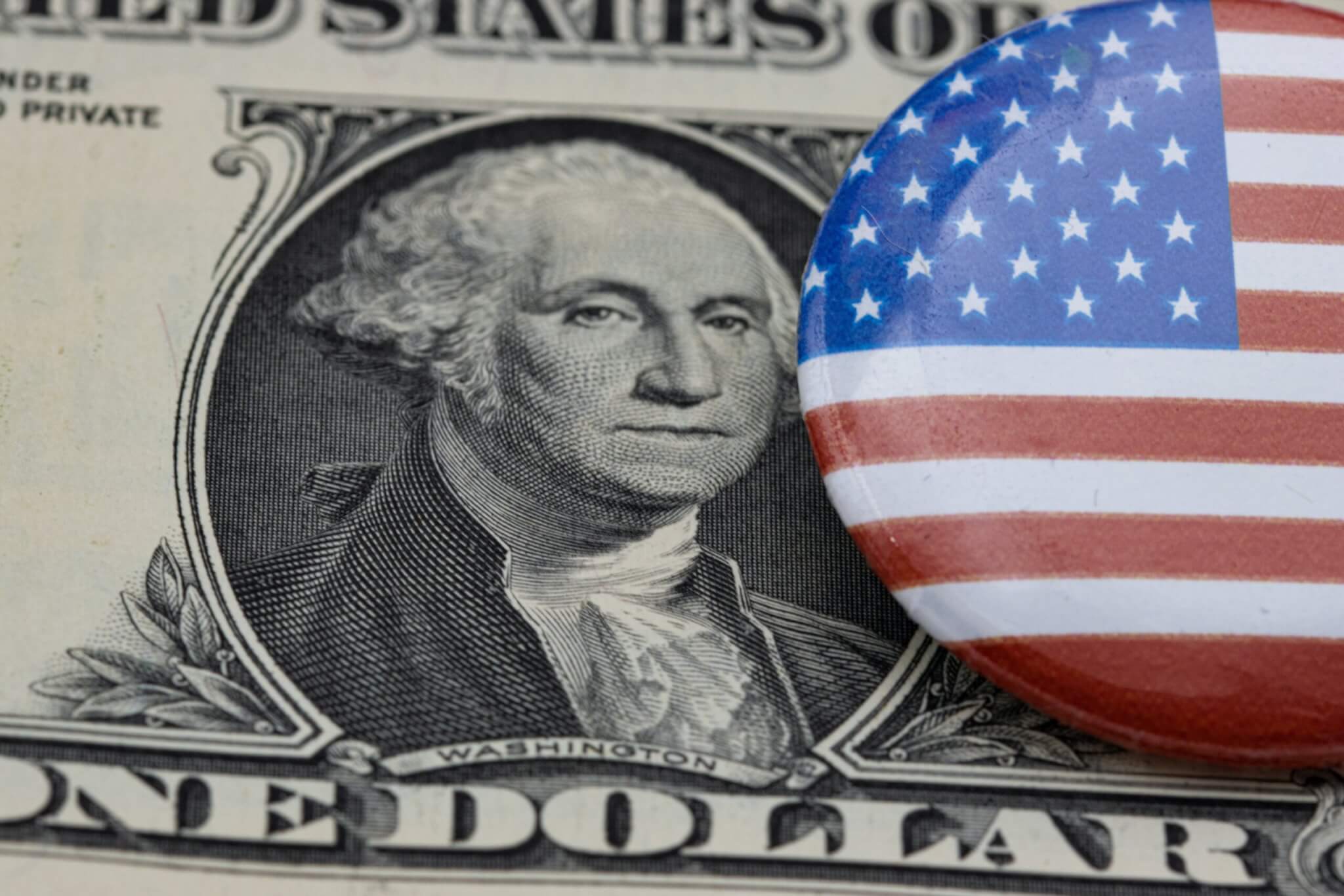
3. Franklin D. Roosevelt
Franklin D. Roosevelt's greatest accomplishments:
New Deal Programs: Roosevelt's New Deal brought about a series of economic reforms and public work projects aimed at recovering from the Great Depression. Key programs like the Civilian Conservation Corps (CCC), Social Security Act, and the Works Progress Administration (WPA) provided jobs, financial security, and infrastructure improvements.
Leadership During World War II: As a wartime president, FDR played a crucial role in leading the United States through World War II. He established strong alliances with Allied nations, oversaw the mobilization of the American economy for war production, and made strategic military decisions that contributed to the defeat of the Axis powers.
Social Security Act: Enacted in 1935, the Social Security Act created a safety net for the elderly, unemployed, and disadvantaged Americans, providing pensions, unemployment insurance, and assistance to families with dependent children. This landmark legislation laid the foundation for the modern welfare state in the U.S.
Banking Reforms and the FDIC: To restore public confidence in the banking system during the Great Depression, Roosevelt implemented reforms such as the Emergency Banking Act and the creation of the Federal Deposit Insurance Corporation (FDIC), which insured bank deposits and regulated banking practices to prevent future financial crises.
Establishment of the United Nations: Roosevelt was a driving force behind the creation of the United Nations in 1945, aiming to promote international cooperation and prevent future conflicts. His vision for a global organization dedicated to peace and security helped shape the post-war international order and continues to influence global diplomacy.
CBS News applauds his efforts in office, saying, “Historians laud Franklin D. Roosevelt for his extraordinary popularity and his devotion to economic justice. FDR assumed the presidency during the worst of the Great Depression, but assured the American people: ‘The only thing we have to fear is fear itself.’ He also led the U.S. through the perilous years of World War II. He is the only American president ever elected to four terms, though he died before completing the last one.”
According to Siena College Research Institute, FDR has been a favorite for a long time: “For the seventh time since its inception in 1982, the Siena College Research Institute’s Survey of U.S. Presidents finds that experts rank Franklin D. Roosevelt, Abraham Lincoln, George Washington, Theodore Roosevelt and Thomas Jefferson as the United States’ top five chief executives. Franklin Roosevelt leads on accomplishments.”
AZ Central ranks him as one of the best presidents, too, writing, “[He’s] best known for his ‘New Deal,’ which created Social Security and reformed the banking system, among other measures.”
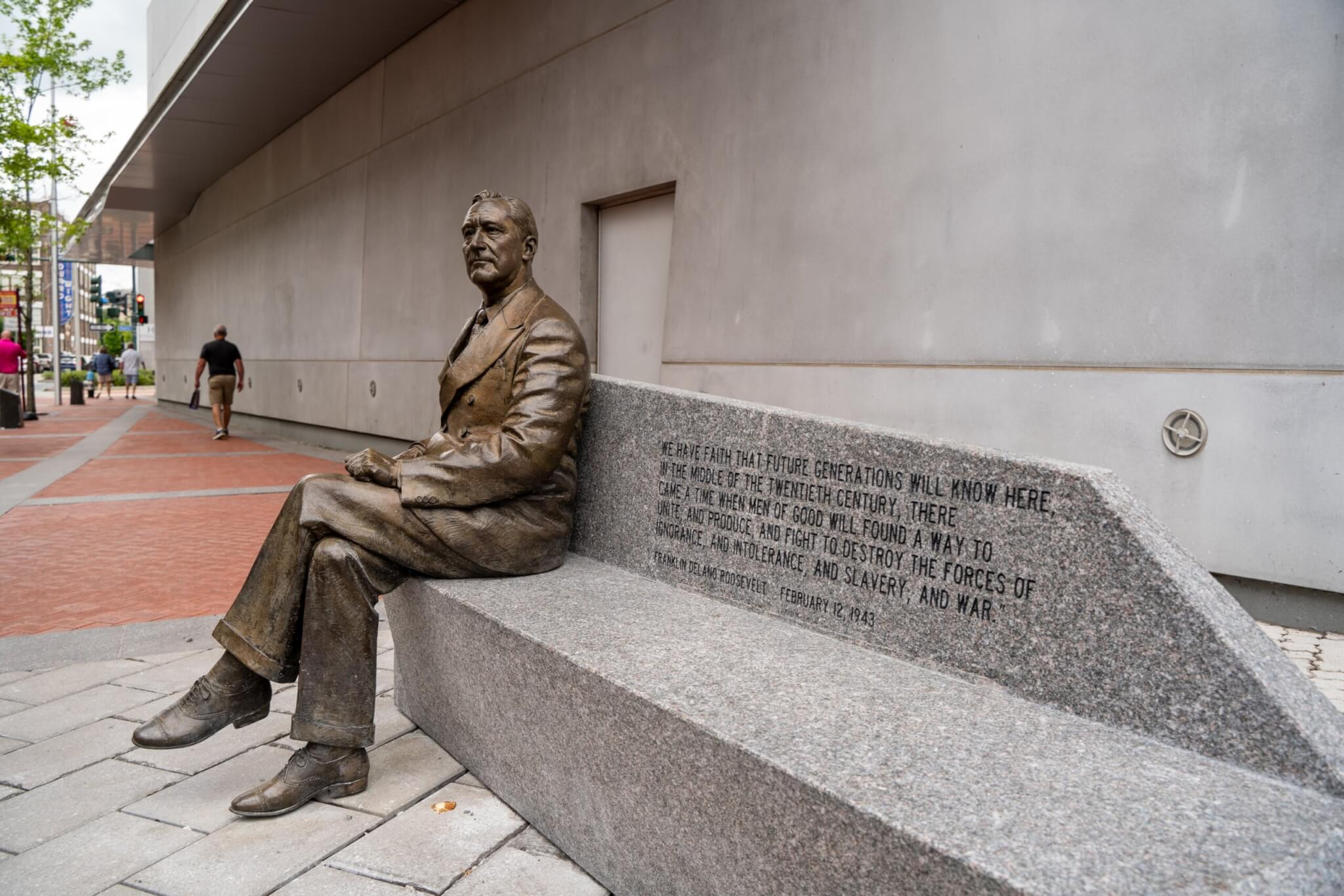
4. Theodore Roosevelt
Theodore Roosevelt's greatest accomplishments:
Trust-Busting and Corporate Regulation: Roosevelt earned the nickname “Trust Buster” for his aggressive actions against monopolies and corporate giants. He enforced the Sherman Antitrust Act to break up large, powerful trusts and promote fair competition, taking on companies like Standard Oil and Northern Securities.
Conservation Efforts: A passionate conservationist, Roosevelt established the United States Forest Service and signed into law the creation of five national parks, 18 national monuments, and 150 national forests. His efforts preserved approximately 230 million acres of public land for future generations.
Panama Canal: Roosevelt played a key role in the construction of the Panama Canal, a monumental engineering project that connected the Atlantic and Pacific Oceans. This greatly enhanced global trade routes and solidified America's strategic and economic influence.
Mediating the Russo-Japanese War: In 1905, Roosevelt mediated the Treaty of Portsmouth, which ended the Russo-Japanese War. For his efforts in brokering peace, he became the first American to be awarded the Nobel Peace Prize.
Square Deal: Roosevelt's domestic policy, known as the Square Deal, focused on the “three Cs”: control of corporations, consumer protection, and conservation of natural resources. This comprehensive approach aimed to ensure that all Americans had a fair opportunity to succeed and that the nation's resources were responsibly managed.
ThoughtCo. ranks Teddy Roosevelt highly, and here’s why: “Elected at age 42, Roosevelt was the youngest man to take office. During his two terms, Roosevelt used the presidency to pursue a strong domestic and foreign policy. Roosevelt implemented regulations to curb the power of large corporations like Standard Oil and the nation’s railroads. He also beefed up consumer protections with the Pure Food and Drug Act, which gave birth to the modern Food and Drug Administration, and created the first national parks.”
“Roosevelt provided leadership when America experienced rapid economic growth as it entered the 20th Century. He was instrumental in negotiating the construction of the Panama Canal, linking the east and the west. He was known as the ‘trust buster’ for his work to end large corporate monopolies and ensure the rights of the common working man,” National Park Service writes.
And the U.S. Department of the Interior says, “Often called a ‘force of nature’ due to his energetic personality, he helped lay the foundation to protect wilderness and wildlife that shaped American land and culture. As president, Roosevelt created five national parks, 18 national monuments, 51 bird sanctuaries, began the National Wildlife Refuge system and set aside more than 100 million acres for national forests.”
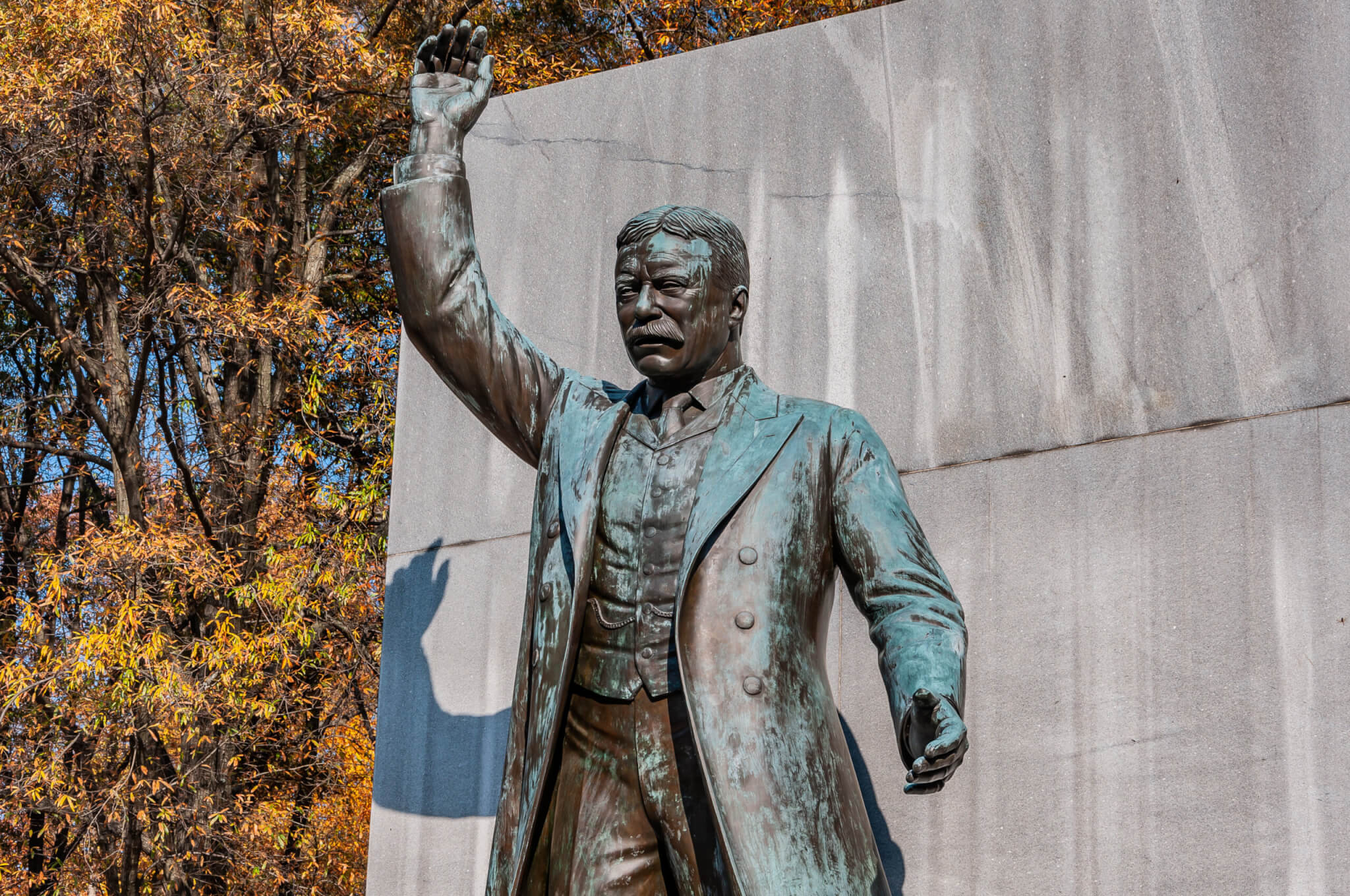
5. Dwight Eisenhower
Eisenhower's greatest accomplishments:
Interstate Highway System: One of Eisenhower's most significant domestic achievements was the creation of the Interstate Highway System in 1956. This vast network of highways transformed American transportation, boosted the economy, and improved national defense mobility.
Civil Rights Acts of 1957 and 1960: Eisenhower signed the Civil Rights Act of 1957, the first civil rights legislation since Reconstruction, which aimed to increase African American voter registration and established the Civil Rights Division in the Department of Justice. The Civil Rights Act of 1960 further strengthened federal oversight of voter registration.
Ending the Korean War: Upon taking office, Eisenhower made it a priority to end the Korean War. His administration successfully negotiated an armistice in 1953, effectively halting the conflict and establishing the Korean Demilitarized Zone (DMZ).
NASA and Space Exploration: Eisenhower's administration established the National Aeronautics and Space Administration (NASA) in 1958, in response to the Soviet Union's launch of Sputnik. This laid the groundwork for America's future achievements in space exploration.
Economic Prosperity and Balanced Budgets: During Eisenhower's presidency, the United States experienced significant economic growth and stability. His administration focused on balancing the federal budget, reducing government spending, and managing inflation, leading to a period of prosperity known as the “Eisenhower Boom.”
Kansas Reflector reflects on his presidency and ranks him fifth: “Dwight Eisenhower and Harry Truman played pivotal roles in World War II and remain affixed to one another near the top of C-SPAN’s ranking of U.S. presidents based on leadership. Eisenhower, with a presidential library in Abilene, finished fifth … unchanged from the previous survey of historians in 2017.”
What makes Ike so great? “Eisenhower’s accomplishments seem to be growing in stature, including his strategy for ending the Korean War, overseeing a period of unprecedented prosperity, establishing NASA, signed legislation to create the Interstate Highway System, and the admission of Alaska and Hawaii as the 49th and 50 states. When it came time to vaccinate the American public for polio, Eisenhower stepped forward to encourage all to be vaccinated, and the nation took his advice,” The Hutchinson News reports.
Thought Co. lists his many accomplishments during presidency: “Several milestones in the civil rights movement took place during Eisenhower's term, including the Supreme Court decision Brown v. Board of Education in 1954, the Montgomery Bus Boycott of 1955-56, and the Civil Rights Act of 1957...In foreign policy, Eisenhower maintained a strong anti-Communist stance in Europe and Asia, expanding the nation's nuclear arsenal and supporting the government of South Vietnam.”
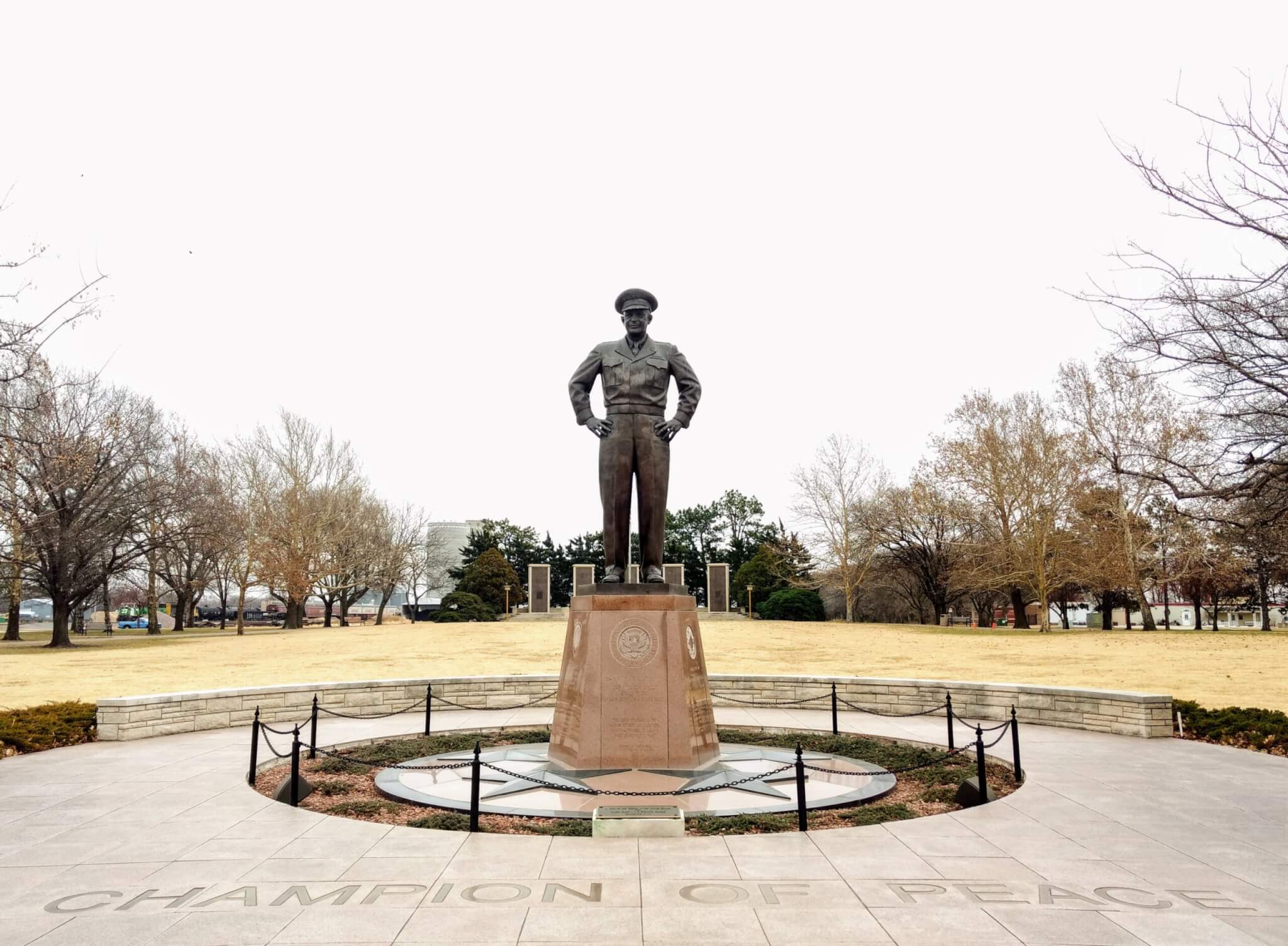
Who would you put in this top five list? Leave us a comment letting us know what you think!
Sources used to form this consensus list
- VOA
- Stacker
- SiLive.com
- Altgov2.org
- Insider
- WION
- CBS News
- Siena College Research Institute
- AZ Central
- ThoughtCo.
- National Park Service
- U.S. Department of the Interior
- Kansas Reflector
- The Hutchinson News
Note: This article was not paid for nor sponsored. EdNews is not connected to nor partnered with any of the brands mentioned and receives no compensation for its recommendations. This article may contain affiliate links in which we receive a commission if you make a purchase.











Ronald Wilson Reagan.
Ronald Wilson Reagan...YES! With support of the American people, defeated Communism without firing a shot.
Lol
Those were my TOP 5 commanders picks in the same order. But my favorites are: IKE, OBAMA, and LBJ.
Role Model: GW.
James Garfield and Kennedy could've been awesome if not assassinated.
And I like Nixon despite his faults.